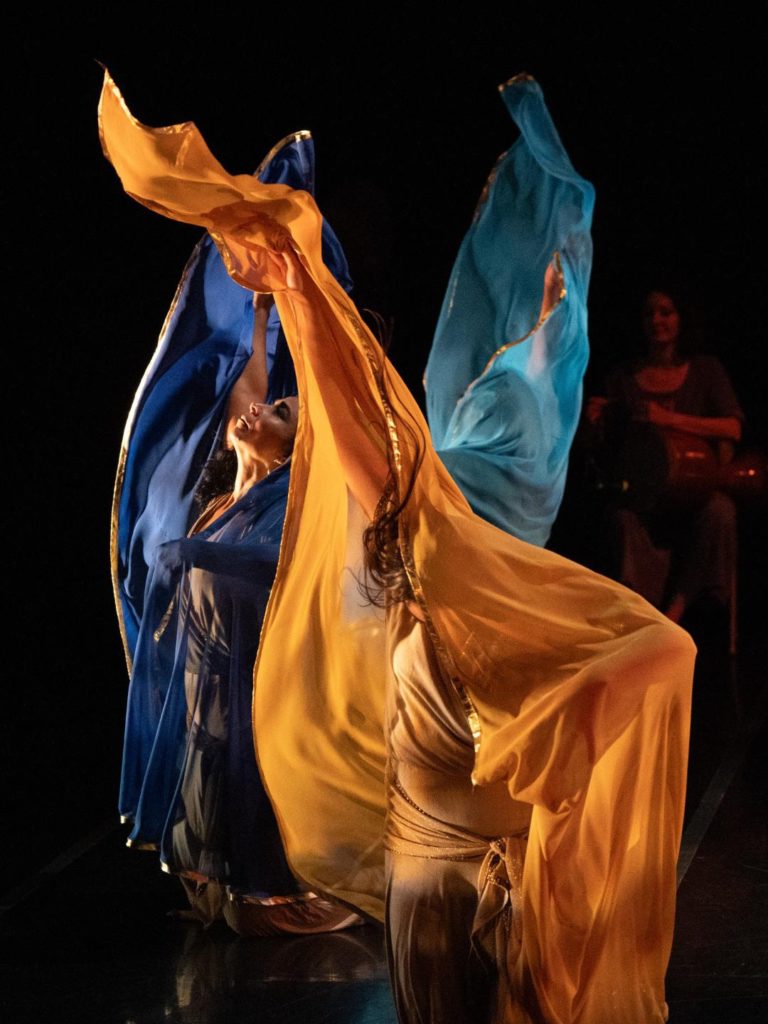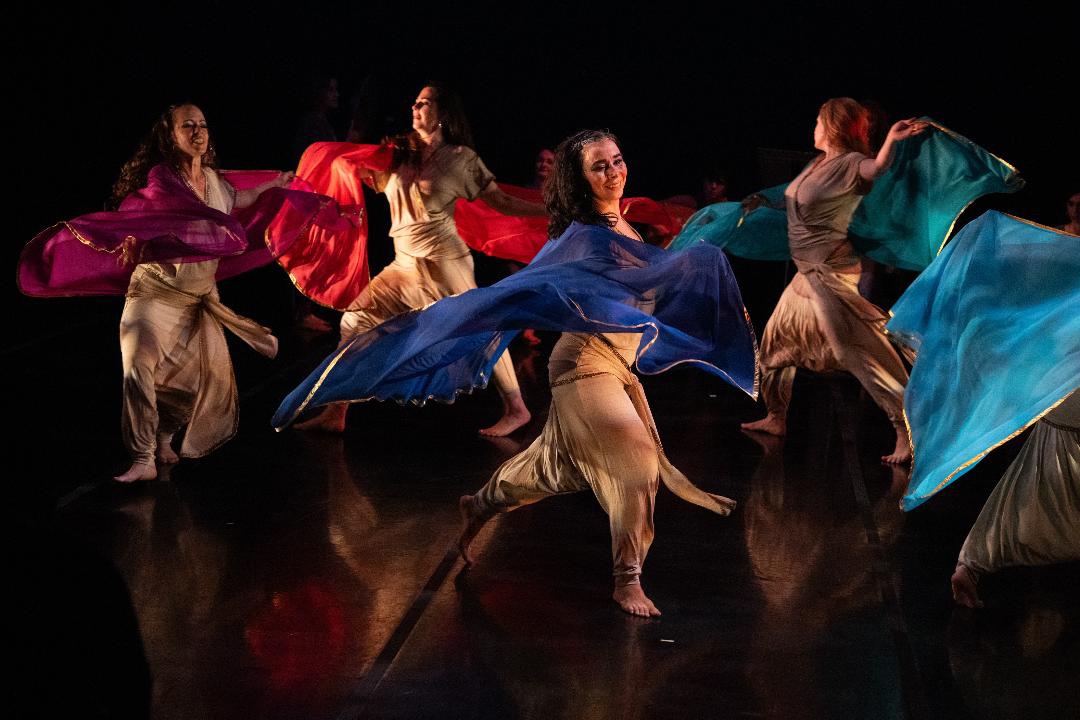Words by Maxine Flasher-Düzgüne?
SAN FRANCISCO: In Turkish (but originating from Arabic), my father told me, “hafez” means one who remembers things…and like poetry’s daring recitations, dancing must be remembered also. While cursed inside its own language, the body opens the door for words to shape themselves around our freedom, and for words to direct our hearts north towards divinity.
Choreographer Parya Saberi’s production Dancing with Hafez – its title referencing Persian lyric poet Hafez – at Dance Mission Theater both began and ended in poetry, its seven individual performances traversing between rooms like the pages of an ancient text. As a silent witness, I offer my own poetry as an attempt to move with Saberi and to stand with her in solidarity for the lives of the fallen Iranian women she commemorates. (The following sections reference the poetry from the program, each corresponding to one of the seven dances performed).
I. I place a mirror in front of your mirror
~ Ahmad Shamlou
The tie of an apron suffocates the red in her dress
A woman pancaked in pink wax & gloss
Her smile overthrown by cookware
Finger cymbals drown in the
Hungry clang of silver
We laughed, but should we have?
No, no, it was okay to laugh…
II. One moonlit night / The moon comes into my dream
~ Ahmad Shamlou
Barefoot musicians stomp and sway
Like dancers themselves in a heavy fog
In white she fragments what moves
Like tiny shards of speech
The repeated hanging of braided hair
From the extent of an arm
Where does one go after this?
III. In the secret place of my soul / The flower of your memory shined
~ Fereydoon Moshiri
In triplet windows of moonlight
The green garden mesh of their skirts
And the incessant tap upon their thighs
Goes up then down, up then down
What luminates you in the darkest of night
De-petaled and bouquet-d
Waiting still behind the display case?
IV. Until you bloomed like night flowers in my moonlight garden
~ Simin Behbahani
Embraced within the deep blue of sky and stars
They hold fingertips in sweet oceanic waves
The flows of their hair splashing
Like the manes of spirits that cannot die
Nor be torn from the sea
I too turned around and saw how pain
Could be blurred in its silk rotations
V. There is a sound of weeping day and night which burns your / nightingale’s heart
~ Hushang Ebtehaj
The oud hums to her shadow
And the vibrations of black harem pants
What sorrowful brows stare from behind
As if an audience weeps within her world
Vocals catch like stones skipping
On a bottomless pond
Float or sink, you still belong here…
VI. No one wants to believe / That the garden is dying
~ Forugh Farrokhzad
She holds up a mirror
Its cubic edges draping thin curtains
If torn are the fibers inside the glass
Where is there light left to see who is reflected?
Just a veil over everything she’s ever hidden
Someone who for ages
Has fed off her own disappearance
VII. I plant my hands in the garden / I will become green, I know, I know, I know
~ Forugh Farrokhzad
The piano meanders in a private moment
Before silken bodies of water waft
The revival of sunken boats to the surface
The daf player promenades in their spirals
Inward they go towards a harmonious end
River bending in this dispersal of light
Only their heartache retreats
I remember gathering tightly around pillows and chairs for the first piece to begin, and someone asked whether I was Persian…while it was not quite true, I smiled back and across the people in the room, for tonight there sat many admirers of poetry, memorizers and non-memorizers, dancers and non-dancers. Because in this language, there can be multiple understandings, interwoven in the tongues of love. The poet, Hafez was known as someone who knew the Koran by heart at an early age, and then went on to memorize the works of other Persian poets. And his influence upon Parya’s choreography suggests a form of wisdom shared between them that can only be described as divine, a revelatory body-mind interrelation that succeeds at translating poetry without the words themselves. Perhaps then we are all dancers, feasting on the language of our ancestors, the language of the past, in this shattered world we still call home.

More information about Parya can be found on her website at www.parya.dance. Follow her projects on Instagram at @parya_dance.
